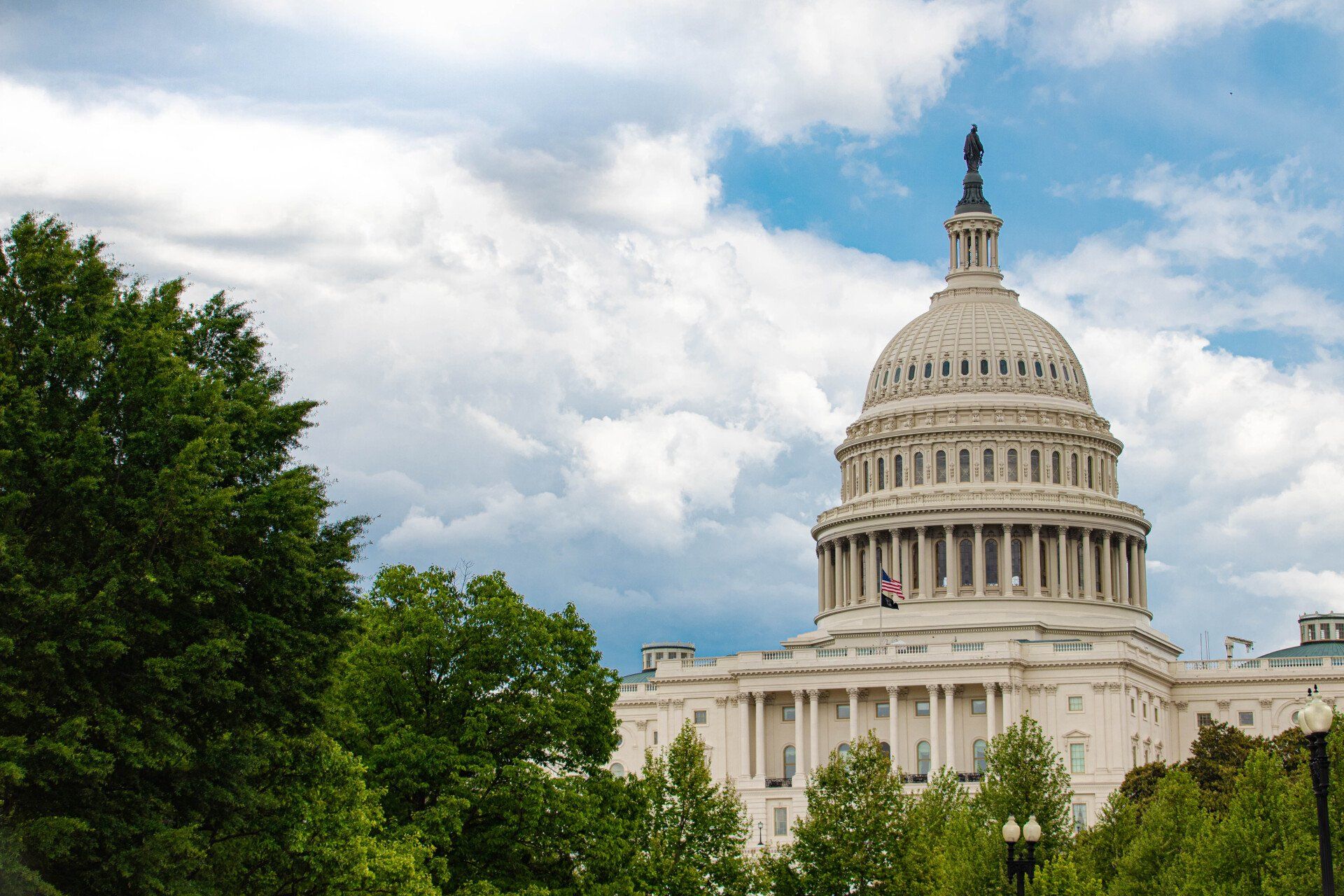CMSSA ARTICLES

KPMG has published a report examining the environmental, social, and governance (ESG) implications of Bitcoin. The study equates Bitcoin's energy consumption to that of clothes dryers and states its emissions are significantly lower than manure. The report emphasizes Bitcoin's potential to positively influence ESG objectives, including carbon emission reduction, enhanced access to financial services, and fostering financial inclusion. It suggests that Bitcoin should not be seen as a menace to current financial systems but as a chance for financial institutions to harness its benefits. Read More: KPMG touts ESG benefits from Bitcoin, counters misperceptions in new report

On July 13, Ripple Labs, the company behind the XRP token, secured a victory in a case brought by the Securities and Exchange Commission (SEC) in the United States District Court. Judge Analisa Torres ruled in favor of Ripple Labs, stating that XRP is not a security. The SEC had sought to stop Ripple from offering XRP, claiming it was a security requiring additional regulation. However, the court granted summary judgment in favor of Ripple Labs, except for the Institutional Sales aspect of the case. Following the news, the price of XRP experienced a significant surge, jumping from $0.45 to $0.61 within minutes, representing a gain of over 25%. The case against Ripple has been ongoing since December 2020, when the SEC sued the company and its executives, Brad Garlinghouse and Chris Larsen, alleging the offering of an unregistered security. The case has attracted attention and controversy, with various developments and Garlinghouse's defiance in response to the SEC's accusations. The crypto community has generally responded with jubilation to the court's ruling, and the surge in XRP's price reflects the positive sentiment surrounding the outcome. Read More: Breaking: Ripple wins case against SEC as judge rules XRP is not a security

Beijing, the bustling capital city of China, unveiled a white paper today with the aim of promoting innovation and development in the web3 industry. The document, titled "Web3 Innovation and Development White Paper (2023)," emphasizes the inevitability of web3 technology in shaping the future of the Internet industry. Released by the Beijing Municipal Science & Technology Commission at the prestigious Zhongguancun Forum, the white paper sets the stage for Beijing to become a global hub for digital economy innovation. The city's Chaoyang district has committed to investing a minimum of 100 million yuan annually until 2025 to support this ambitious endeavor. The release of the white paper is notable for its timing, attracting attention from industry experts. Changpeng Zhao, the CEO of Binance, remarked on the intriguing coincidence that Hong Kong's crypto regulations are set to take effect on June 1. Last week, Hong Kong's Securities and Futures Commission unveiled new rules allowing retail investors to engage in crypto trading and introducing a licensing regime for crypto platforms. This move by Hong Kong aligns with its efforts to attract crypto firms, which is happening simultaneously with a regulatory crackdown on cryptocurrencies in the United States. China, having prohibited the use of cryptocurrencies in 2021, seems to be signaling a more open approach to the industry with the release of the web3 white paper. Notably, the timing of the white paper release is seen as significant due to recent developments in China's media landscape. China Central Television (CCTV), the state broadcaster, aired a segment featuring cryptocurrencies, including Bitcoin and NFTs. This coverage, which has since been taken down, is considered noteworthy by Binance's Zhao, as similar media attention in the past has coincided with bullish market trends. These collective actions from Beijing, Hong Kong, and Chinese media outlets suggest a shifting landscape for cryptocurrencies and the broader web3 industry within China, indicating a potential loosening of restrictions and increased interest in the sector. Read More: Beijing releases white paper for web3 innovation and development

The crypto communication crisis must be solved... Quickly. The path to widespread adoption of Web3, cryptocurrency, and blockchain technologies is obstructed by a significant language barrier. Current industry jargon and technical terminology are deterring the mainstream public, resulting in skepticism and negative perceptions. To address this challenge, the Web3 community must prioritize clear and accessible communication that highlights the practical benefits and transformative potential of these technologies. Web3's language crisis stems from its reliance on niche terminology and the assumption of shared knowledge among like-minded individuals. However, as the industry expands, it must effectively communicate with new audiences. This requires simplifying complex concepts and using inviting language that resonates with people's needs and concerns. By shifting the narrative towards addressing real-world problems and offering solutions, the Web3 community can capture the curiosity of the mainstream. To bridge the communication gap, the industry must first understand its audience and their perspectives. Asking questions like "What would you change about the internet?" or "What are your concerns about banking?" enables Web3 advocates to connect with individuals on a more personal level. By demonstrating genuine empathy and showcasing how Web3 can address their pain points, the industry can foster trust and engagement. While using simpler language is an essential first step, it must be complemented by genuine intent and a user-centric approach. Web3 stakeholders must communicate with transparency, emphasizing the benefits of decentralization, increased privacy, and improved financial inclusivity. By aligning their messages with the needs and values of the mainstream audience, the industry can break down barriers and create a more welcoming environment. In conclusion, effective communication is pivotal for the success of Web3 projects. By using accessible language, focusing on user needs, and adopting a proactive crisis communication plan, the industry can build trust and overcome skepticism. As Web3 continues to evolve, it is crucial to prioritize clear and inclusive communication to ensure that everyone feels invited and empowered to participate in this transformative digital landscape. Read More: Web 3 Needs New Words

Representative Maxine Waters, the top Democrat on the House Financial Services Committee, is proposing changes to the stablecoin legislation put forth last fall. The changes are aimed at addressing concerns raised by lawmakers, the US Treasury, and the Federal Reserve. Waters is circulating a draft of the changes to gauge support from other committee members. This comes after Waters expressed dissatisfaction with the previous stablecoin bill negotiated last year and suggested the need to start from scratch. The proposed changes by Waters include strengthening protection for digital wallets by ensuring the separation of customer assets from crypto exchanges, striking direct access to the Federal Reserve for non-bank stablecoin issuers, and giving the Fed the option to decline registration of a state-approved stablecoin issuer. These changes aim to address issues related to the collapse of crypto exchange FTX and align stablecoin issuers with the existing approval process for state-chartered banks. The article highlights the potential for cooperation between Democrats and Republicans on stablecoin legislation. While Republicans had crafted their own draft bill that included giving strong authority to states in regulating stablecoin issuers, Waters' proposed changes indicate that both parties may not be far apart on the issue. The focus now shifts to political will and collaboration between the two sides to reach a consensus and address regulatory concerns surrounding stablecoins. Overall, the article discusses Rep. Waters' proposed changes to the stablecoin bill and the possibility of cooperation between Democrats and Republicans on this issue. The changes aim to address regulatory concerns and strengthen consumer protections in the stablecoin space. The article emphasizes the need for collaboration and political will to reach a consensus and effectively regulate stablecoins, highlighting the importance of addressing the potential risks they pose to the financial system. Read More: Rep. Waters Floats Changes to the House Stablecoin Bill - Will Republicans Cooperate?

After the collapse of several multi-billion dollar projects in 2022, the cryptocurrency industry has faced heightened regulatory scrutiny. Authorities have turned their attention to this burgeoning sector, seeking to address concerns and protect investors. The high-profile failures have raised questions about the stability and oversight of the cryptocurrency market, prompting regulatory bodies to implement stricter measures to prevent similar incidents in the future. The implosion of several multi-billion dollar projects in 2022 has sparked intense regulatory scrutiny in the cryptocurrency industry. Unsurprisingly, cryptocurrency exchanges have emerged as the primary target for regulators due to their role as custodians and their direct relationships with retail investors. Regulators in the United States, such as the Securities and Exchange Commission (SEC), have taken action against prominent exchanges. Coinbase received a Wells Notice, Kraken was fined $30 million for staking-related offerings, and Bittrex faced charges of operating an unregistered securities exchange. Similar developments have been observed in the European Union, Dubai, Hong Kong, and other regions, indicating that the days of lax crypto regulation are firmly in the past. Compliance has become crucial for all cryptocurrency-related businesses, with exchanges facing particular scrutiny. Regulators worldwide have recognized the need to mitigate risks associated with cryptocurrencies, including cross-border transactions and anonymity. While solutions like the virtual asset service providers (VASP) rules proposed by the Financial Action Task Force (FATF) focus on preventing financial crimes, recent high-profile failures have highlighted the need for consumer and investor protection measures. Regulators have responded swiftly to prevent the impact of similar downturns in the crypto market on retail and institutional investors. U.S. SEC Chairman Gary Gensler proposed custodial platforms to segregate funds, provide disclosures and audits, and ensure customer funds' accessibility in case of bankruptcy. The European Union approved the Markets in Crypto-Assets (MiCA) regulation, Dubai established new rules for crypto-related businesses, and Hong Kong introduced a licensing regime with capital requirements for exchanges. Cryptocurrency exchanges hold significant responsibility in implementing safeguards and maintaining compliance standards to protect users. The window for regulatory arbitrage is closing, and exchanges must proactively demonstrate their commitment to compliance. Bullish sets an example by embracing the latest compliance standards and utilizing cutting-edge blockchain analytics tools to create a safer environment for investors. The regulatory landscape is evolving, and exchanges must expand their compliance programs beyond anti-money laundering and sanctions compliance. They must address risks related to market manipulation, insider trading, and regulatory compliance. Compliance teams may require retraining or hiring additional staff to effectively manage these new risks. The winners in this evolving landscape will be crypto firms with robust controls and governance, as investors increasingly seek quality and trust. Trust can be restored through truthful communication and demonstrating compliance efforts. Cryptocurrency exchanges must not hide behind complexity but ensure that clients, regulators, and counterparties understand their safety measures. Technology, specifically blockchain, can support and enhance regulatory compliance. However, crypto firms cannot claim immunity from regulations based solely on their technological setup. Regulations are being applied universally to all firms involved in financial services. Crypto exchanges and regulators should engage in an open dialogue to achieve positive outcomes. Exchanges should work with regulators and contribute to decision-making processes. Looking ahead, both the cryptocurrency industry and regulators are still navigating uncharted territory. Compared to the centuries-old traditional finance sector, both parties are relatively new to the world of digital assets. However, this presents an opportunity for collaboration and open dialogue to shape the industry's future. Priscilla Adams, in her role as Group Director of Compliance at Bullish, is dedicated to furthering this cause. She believes that relying solely on technology as a defense mechanism is counterproductive and can erode trust. Instead, cryptocurrency exchanges should demonstrate a willingness to work with regulators, guiding the conversation toward positive outcomes. Adams advocates for exchanges having a seat at the table and engaging in a two-way dialogue with regulators. By including a wide range of stakeholders in the decision-making process, the industry can work towards rebuilding trust and reputation. It will be a long road, but Adams finds it a worthwhile calling to help restore integrity and contribute to the bright future of the digital asset space. As the industry evolves, compliance remains a cornerstone for cryptocurrency exchanges. While technology plays a crucial role in supporting compliance efforts, it is not a "get out of jail free card." Exchanges must recognize that regulations apply to them and adapt their business models and risk management procedures accordingly. Proper segregation of rules and assets, along with a culture of compliance, is essential. The future of the cryptocurrency industry lies in the collaboration between regulators, industry players, and crypto firms. Trust can be rebuilt through truthful communication, adherence to regulations, and a demonstrated commitment to compliance. Exchanges must go beyond complexity and make their platforms safe and credible for all users, including those without extensive knowledge of finance or cryptocurrency. As regulations continue to evolve globally, exchanges must adapt and invest in their compliance teams. This includes building expertise in various areas such as market manipulation, insider trading, and regulatory compliance. The winners in this evolving landscape will be the crypto firms that prioritize robust controls, governance, and a proactive approach to compliance. In conclusion, the cryptocurrency industry is experiencing heightened regulatory scrutiny following the failures of major projects in 2022. Cryptocurrency exchanges, as custodians and direct links to retail investors, are the primary focus of regulators. Compliance is key in this new era of increased regulatory scrutiny, and exchanges must take the lead in implementing safeguards and maintaining strict compliance standards. The regulatory ball is rolling, and regulators are working towards mitigating risks associated with cryptocurrencies and ensuring consumer and investor protection. Exchanges are embracing compliance as part of their mission to drive mainstream adoption of digital assets. Engaging in open dialogue with regulators and demonstrating a commitment to compliance and transparency will be crucial for rebuilding trust and shaping the future of the digital asset industry.

The recent wave of bank failures has prompted investors to seek alternative ways to hedge against a weakening financial system. Amid ongoing concerns about the debt ceiling and potential defaults, some investors are turning to hard assets like bitcoin as a potential safe haven during the storm. In a discussion on a recent podcast, Avi Felman of GoldenTree and Jonah Van Bourg of Cumberland explored the possible market reactions to a technical default by the United States. Felman predicted that such a headline could push bitcoin's price beyond $30,000 and potentially reach $35,000, driven by a combination of debt ceiling panic and the perception of bitcoin as a hard asset. Van Bourg expressed even more optimism, suggesting that a US default could lead to all-time highs in the bitcoin market. He considered a default to be a seminal event in financial history, where bitcoin prices could test or even surpass the previous peak of $70,000. The risk-free rate would no longer be risk-free, and people could shift their funds from fiat to crypto in large numbers if fiat became unstable. However, Felman disagreed, stating that reaching all-time highs was unlikely due to uncertainty about the source of significant buying. While retail investors might be drawn back into the market if prices surged to $35,000, Felman noted that the enthusiasm seen during the pandemic had diminished among retail buyers. Read More:: Shaky US Treasury Could Push Buyers Back to Bitcoin

Financial advisors have a unique opportunity to gain valuable insights from cryptocurrency investors. These investors possess a different mindset and approach to risk compared to traditional investors, embracing risk and exploring new investment opportunities. By studying their strategies and tactics, advisors can better understand emerging technologies and disruptive trends, enabling them to identify investment opportunities in the rapidly evolving digital asset space. Additionally, staying informed and continuously educating themselves about cryptocurrencies and blockchain technology is crucial for advisors to guide their clients through the complexities and potential risks associated with investing in cryptocurrencies. By adopting a more open mindset, embracing risk, and learning from their cryptocurrency clients, advisors can enhance their knowledge, adapt to changing market dynamics, and better serve their clients' investment needs in the digital asset space. Read More: Advisors, Understand Crypto or Your Clients Will

As cryptocurrencies become more popular, people are starting to include them in their estate and legacy planning. However, because cryptocurrencies are a relatively new asset class, there are some unique challenges that must be considered when including them in an estate plan. One challenge is the issue of passwords and private keys. Cryptocurrencies are often stored in digital wallets that require a password or private key to access. If these are lost or forgotten, the cryptocurrencies may be inaccessible. Therefore, it's important to make sure that passwords and private keys are included in an estate plan and that trusted individuals are given access to them. Another challenge is the tax implications of transferring cryptocurrencies after death. In the United States, cryptocurrencies are treated as property for tax purposes, which means that transferring them to heirs could trigger capital gains tax. Estate planners may need to consider strategies such as gifting cryptocurrencies before death or establishing trusts to minimize the tax burden on heirs. Overall, estate and legacy planning for cryptocurrencies requires careful consideration of the unique characteristics of this asset class. With proper planning, individuals can ensure that their cryptocurrencies are passed on to their heirs as intended. Read More: Estate and Legacy Planning for Crypto Assets

Larry Fink, the influential CEO of BlackRock - the world's largest asset manager - has expressed his desire for progress in today's financial industry. He is particularly concerned about America being left behind other nations as revolutionary development takes place at a faster rate and with greater success elsewhere. Specifically, he wishes to explore tokenization of assets more thoroughly; this process could result in higher efficiency along with cost reductions and improved access for investors alike.

